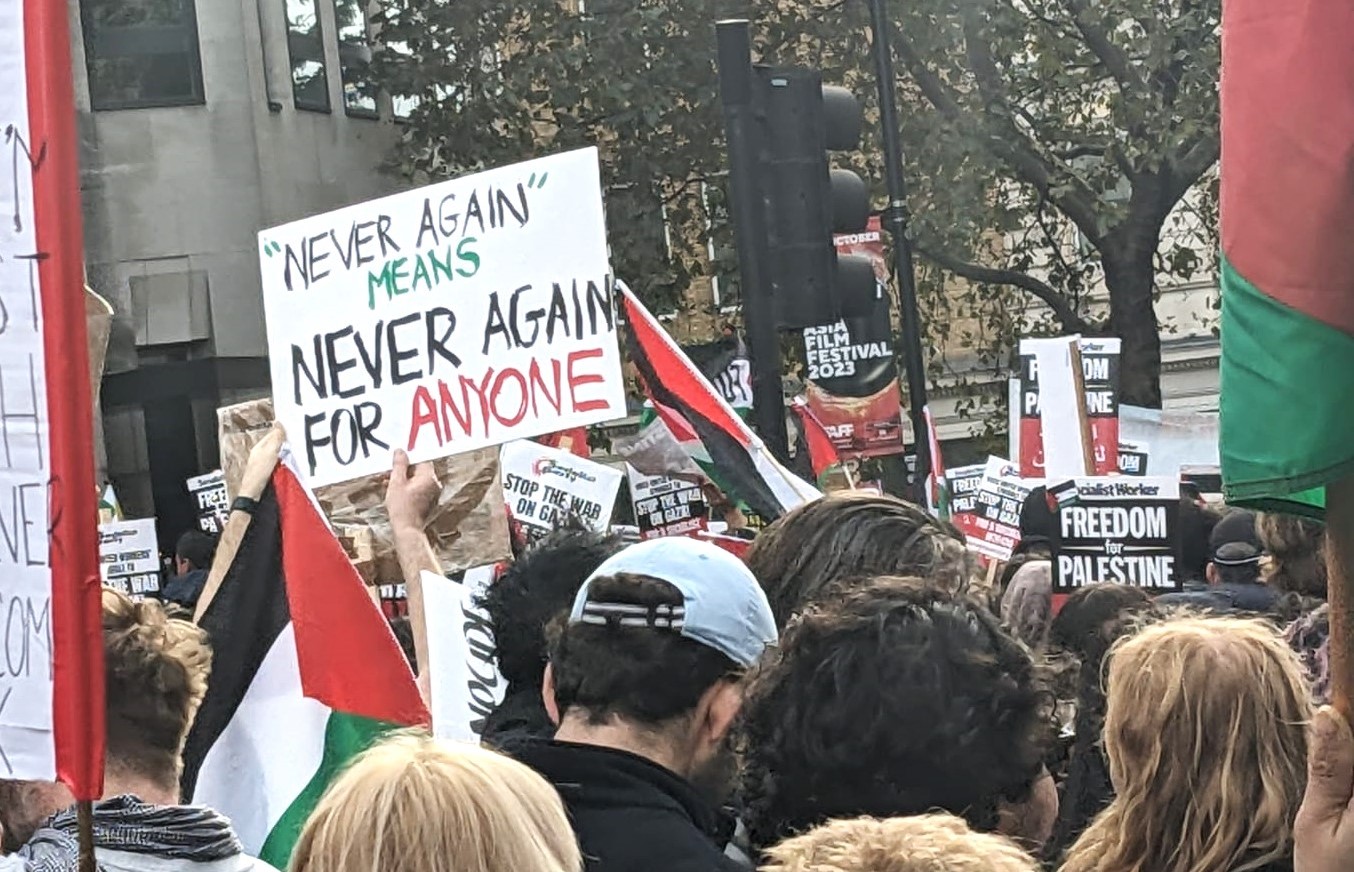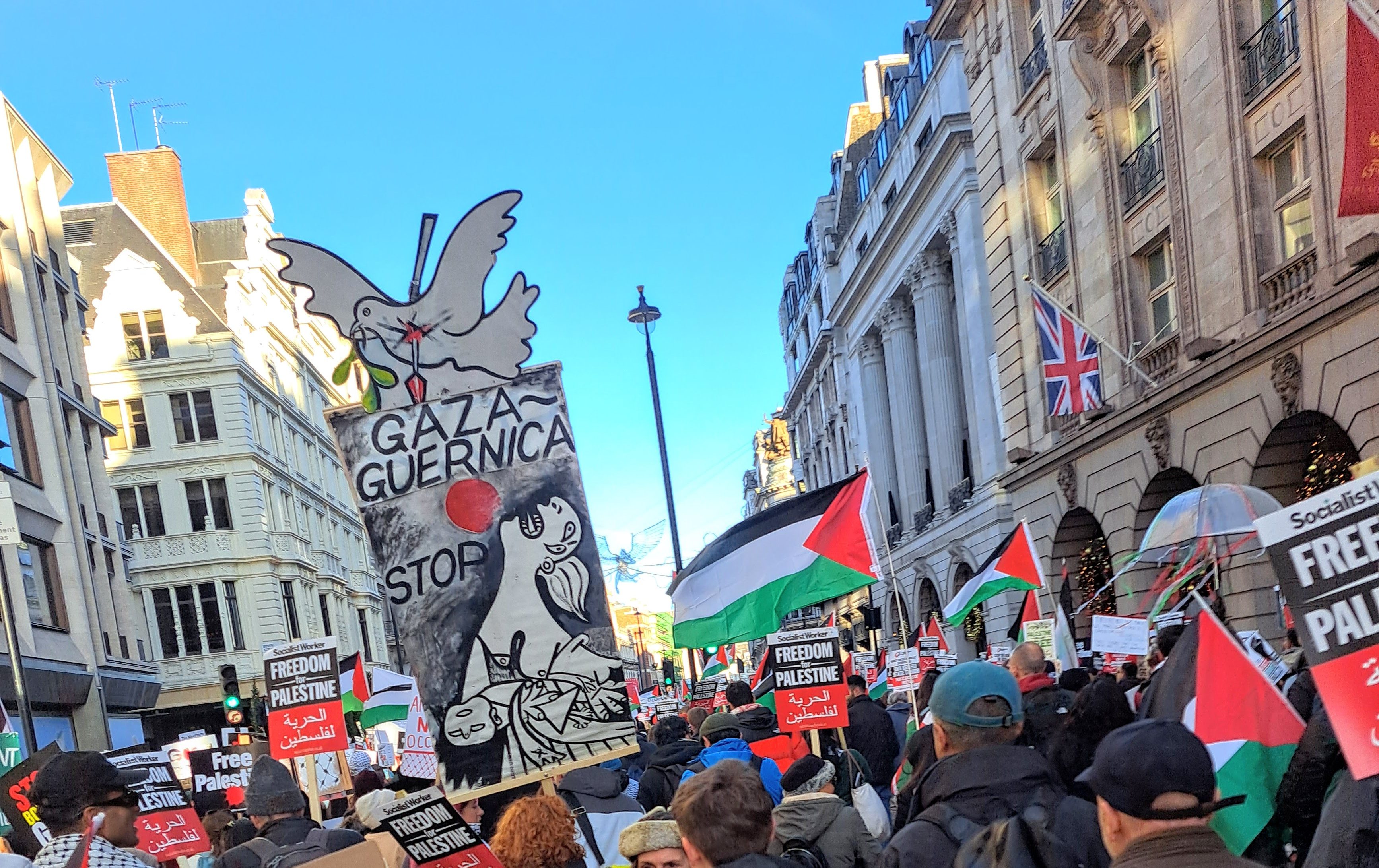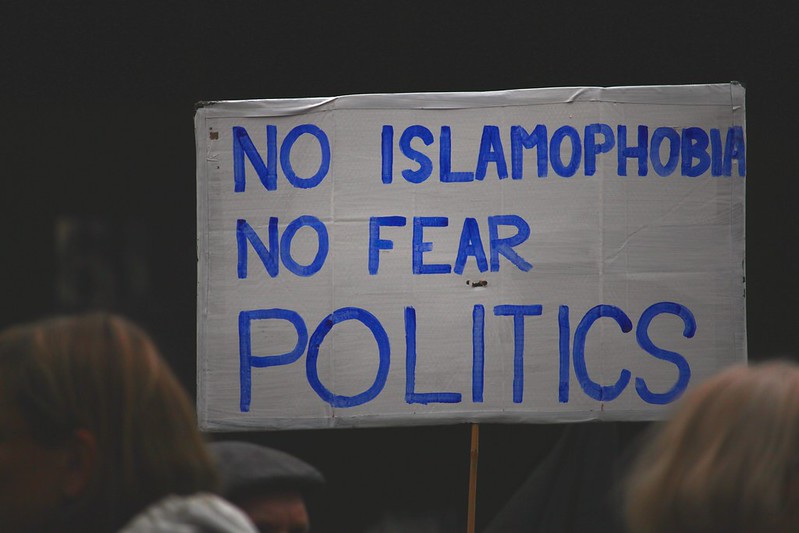Professor Kate Meagher discusses the series of protest marches in London calling for a ceasefire in Gaza and adherence to international law. She highlights the disparity between the peaceful nature of the marches and their portrayal in mainstream media as extremist gatherings.
In nearly seven months since 7 October, 13 national protest marches have been held in London in which hundreds of thousands of people from across the UK have taken to the streets to call for ceasefire in Gaza, and for adherence to international law. In the seven marches of 2024, participation has averaged 250,000, with a surge to 500,000 on 13 January following the hearing of South Africa’s genocide case against Israel in The Hague. Following the horrific attack of 7 October, Israel’s assault on Gaza has killed thirty times as many Palestinians, mostly civilians, in violation of the most basic rules of war. While the London ceasefire marches condemn all violence against civilians, mainstream media has supported the UK government in creating a twisted looking glass world in which marching for peace is portrayed as ‘extremism’, and the ongoing killing and starvation of tens of thousands of Palestinian civilians is styled as ‘self-defense’.
Diverse voices for peace
Referred to in the media as ‘hate demos’, ‘hate-filled mobs’, and an ‘antisemitic hate parade’, the London ceasefire marches are swelled by ‘every demographic under the sun’ expressing their solidarity, their disbelief, and their outrage that after all these months, the slaughter of innocent civilians still continues. Steadfast participants include trade unions from across the country, some 13 Jewish organizations marching in the Jewish Bloc, the colourful banners of Queers for Palestine and Gardeners for Palestine, and cameo appearances of child-friendly celebrities like Charlotte Church and the twelve-foot child refugee puppet, Little Amal.
Rejecting the toxic government rhetoric surrounding the marches, one placard declared ‘ We are NOT an ISLAMIST MOB. We Are People of All Faiths and None Calling for PEACE’. Amid statistics, photos and names of over 13,000 children killed in Gaza so far, one woman carried a long pole with silhouettes of children climbing toward a cluster of watermelon balloons, bearing the caption ‘Save the Rest of Us’. Watermelon banners and placards are everywhere, including a beautifully painted sign saying ‘If you bomb a watermelon, you disperse its seeds’. A politically creative message read: ‘If you don’t want Hummus, stop smashing the Chickpeas’. More trenchant placards called out the glaring international hypocrisy: ‘THE US and UK GIVES AID TO GAZA YET ARMS AND FUNDS ISRAEL’S GAZA GENOCIDE. SPEAK RESIST SAVE GAZA’, while another stated ‘Every Day is October 7th for Palestinians’.
Media coverage and shifting narratives
The London ceasefire marches no longer make the headlines, and mainstream media coverage on the day keeps the focus on arrests, policing, and extremist allegations. The Telegraph sets the tone with ‘Eleven pro-Palestine protesters arrested as thousands march to Israeli embassy in London’, while the Express howls ‘Chaos erupts as 250,000 flood London streets – arrests made’. The BBC, The Guardian and The Standard have routinely minimized the size of the protests with headlines like ‘Thousands attend Pro-Palestine march in London’, or ‘10,000 march through London in support of Gaza ceasefire’, while focusing their commentary on policing and the handful of public order arrests, including, hilariously, ‘possession of stickers’ with intent.
Amid the persistent appearance of hundreds of thousands marching for peace in Gaza, media discourse on the London ceasefire marches has evolved from accusations of extremism in January, to the inconvenience to Londoners and excessive burden on policing in February, to accusations of Islamist takeover making London a ‘no go zone for Jews’. Widespread Jewish participation in the marches, and a Guardian story in March recognizing that ‘the arrest rate at these marches was lower than at the most recent Glastonbury music festival’ have had little effect.
Refusing Complicity
Disturbingly, controversies about freedom chants and inconvenience to Saturday shoppers absorb more political attention than the actual focus of the marches: the need to stop the spiralling inhumanity in Gaza. Without minimizing the trauma of October 7, the Observer reminds us that the laws of war regarding the protection of civilians remain binding regardless of the crimes of one’s opponent. Yet, right after the ICJ interim ruling to protect Palestinian civilians in Gaza, Israeli authorities precipitated further restriction of humanitarian aid through as yet unsubstantiated terrorists accusations against UNRWA and an increasingly inhospitable environment for aid workers. Meanwhile, on top of the horrific civilian death toll, the ‘most moral army in the world’ has attacked hospitals and schools, shot three Israeli hostages who were stripped to the waist and waving white flags, repeatedly fired on crowds of famished people trying to collect food aid, allowed revellers to block aid trucks from entering Gaza, and methodically bombed three well marked and militarily cleared aid vehicles from World Central Kitchens, killing all aid workers inside. Still, the UK and US continue to stand with Israel.
The recent Academy award-winning film, The Zone of Interest, offers a piercing allegory of this topsy-turvy moral realm. The film follows the family of the commandant of Auschwitz, housed next door to the concentration camp, as they go about their daily lives, strolling in the garden, tending children, and holding coffee klatches, while unspeakable things are taking place on the other side of the wall. The film highlights the ease with which societies normalize atrocities, and pays tribute to the small acts of resistance by those who refuse to be complicit.
The film’s release coincided with the UK government’s torrent of outrage over the ‘appalling Islamist marches’, blamed by the Prime Minister for causing ‘a shocking increase in extremist disruption and criminality’, and denounced as fundamentally unBritish. Insistent calls to ban the marches and return to British ‘civility, tolerance and order’ seem to suggest that the public should focus on gardening and tea parties while unspeakable things are happening on the other side of a wall.
Token Responses and Naked Interests
As horror and resistance mount, there are signs that the tide of global opinion may be turning, with a UN ceasefire resolution finally being passed, and additional border crossings being opened to allow more aid into Gaza. But behind these encouraging trends, the amount of aid actually getting through remains grossly inadequate, and the US, Germany and UK continue to arm Israel amid a slight increase in food packages and finger wagging.
In fact, the Washington Post revealed that the US has approved more than 100 arms sales to Israel since 7 October, and just voted a further $26 billion in financial aid, while Jared Kushner and Israeli settlers salivate over beach front property in Gaza. US President Biden continues to draw blurry red lines, largely in Palestinian blood, and as observed by Bloomberg UK, the Israeli regime continues to cross them. Meanwhile, UK officials scramble to explain why cutting off arms exports to Israel is unnecessary, despite a growing chorus of voices within the government and the judiciary warning that ‘Israel is, to put is diplomatically, not paying attention to its international humanitarian law obligations’, and the UK is at risk of complicity in ‘grave breaches of international law’.
Seeking accountability
We seem to find ourselves in the midst of what Antonio Gramsci called ‘the time of monsters’, when a dying order refuses to give way regardless of the cost, even if it means geopolitical complicity in an unfolding genocide. Faced with the unbearable losses in Israel and Gaza, and the monstrous collusion of Western powers, the London ceasefire marches join forces with all those calling for international accountability and divesting from violence, even in these anguished times. A sobering article in the London Review of Books cited the Austrian Holocaust survivor, Jean Améry, a fierce early advocate of Israel who turned anti-Zionist campaigner when he learned that Palestinians, like him, were tortured by their jailors. His words echo across the carnage, man-made famine, and apocalyptic devastation in Gaza: ‘Where barbarism begins, even existential commitments must end.’
The views expressed in this post are those of the author and do not reflect those of the International Development LSE blog or the London School of Economics and Political Science.
Featured image: “They try to bury us but they don’t know we’re seeds”, placard at London ceasefire marches in March. Image credit: Kate Meagher.






Great post Kate!